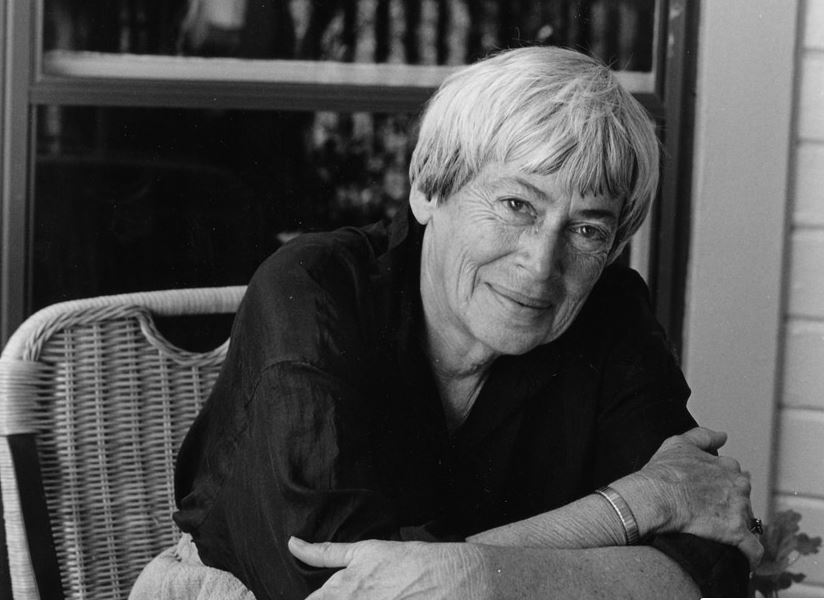Wednesday
When I learned yesterday that fantasy and sci-fi author Ursula Le Guin had died, I thought of The Farthest Shore, where she explores humans’ fear of death. The third of her Earthsea series, Farthest Shore is about a dark wizard who, seeking to become immortal, opens up a crack between this world and the afterworld. As a result, a strange lethargy is spreading through the land. Magic is disappearing, people are forgetting the old songs, and the wise old dragons are losing the power of speech and committing suicide.
Although Farthest Shore is a young adult novel, Le Guin must have thought of its themes as she went through her final illness. In their quest to confront the dark wizard, the archmage Ged and the young prince Arren seek to understand how death impacts the way we view life. At one point Arren is paralyzed when Ged appears to be dying, and Ged later asks him what he thought and felt:
“Nothing, my lord—nothing! I thought there was no use in doing anything. I thought your wizardry was gone—no, that it had never been. That you had tricked me.” The sweat broke out on Arren’s face and he had to force his voice, but he went on. “I was afraid of you. I was afraid of death. I was so afraid of it I could not look at you, because you might be dying. I could think of nothing, except that there was—there was a way of not dying for me, if I could find it. But all the time life was running out, as if there was a great wound and the blood running from it—such as you had. But this was in everything. And I did nothing, nothing, but try to hide from the horror of dying.”
This image of life running out is one which the dark wizard will also use when they finally find him. He has achieved what humans think they want—immortality—but as a result life no longer enchants. When he opens up a portal between the living and the dead through which he can pass, all light is sucked out of his world:
I opened the door between the worlds and I cannot shut it. No one can shut it. It will never be shut again. It draws, it draws me. I must come back to it. I must go through it and come back here, into the dust and cold and silence. It sucks at me and sucks at me. I cannot leave it. I cannot close it. It will suck all the light out of the world in the end. All the rivers will be like the Dry River.
Earlier, in response to Arren’s horror at death, Ged tells him, “To refuse death is to refuse life,” and,
There is no safety, and there is no end. The word must be heard in silence; there must be darkness to see the stars. The dance is always danced above the hollow place, above the terrible abyss.
Then he becomes very direct:
Listen to me, Arren. You will die. You will not live forever. Nor will any man nor any thing. Nothing is immortal. But only to us is it given to know that we must die. And that is a great gift: the gift of selfhood. For we have only what we know we must lose, what we are willing to lose….That selfhood which is our torment, and our treasure, and our humanity, does not endure. It changes; it is gone, a wave on the sea. Would you have the sea grow still and the tides cease, to save one wave, to save yourself? Would you give up the craft of your hands, and the passion of your heart, and the light of sunrise and sunset, to buy safety for yourself—safety forever?
Ged makes the same point to the dark wizard:
You cannot see the light of day; you cannot see the dark. You sold the green earth and the sun and stars to save yourself. But you have no self. All that which you sold, that is yourself. You have given everything for nothing. And so now you seek to draw the world to you, all the light and life you lost, to fill up your nothingness. But it cannot be filled. Not all the songs of earth, not all the stars of heaven, could fill your emptiness.
As she was dying, I’m sure Le Guin must have known that the pain was more than offset by the richness of the life she had lived, a richness experienced precisely because one day it would end. She would not have given up her writing craft, the passion of her heart, and the light of sunrise and sunset, to buy safety for herself.
This richness she shared through her novels, short stories and poems. That part of her lives on.
